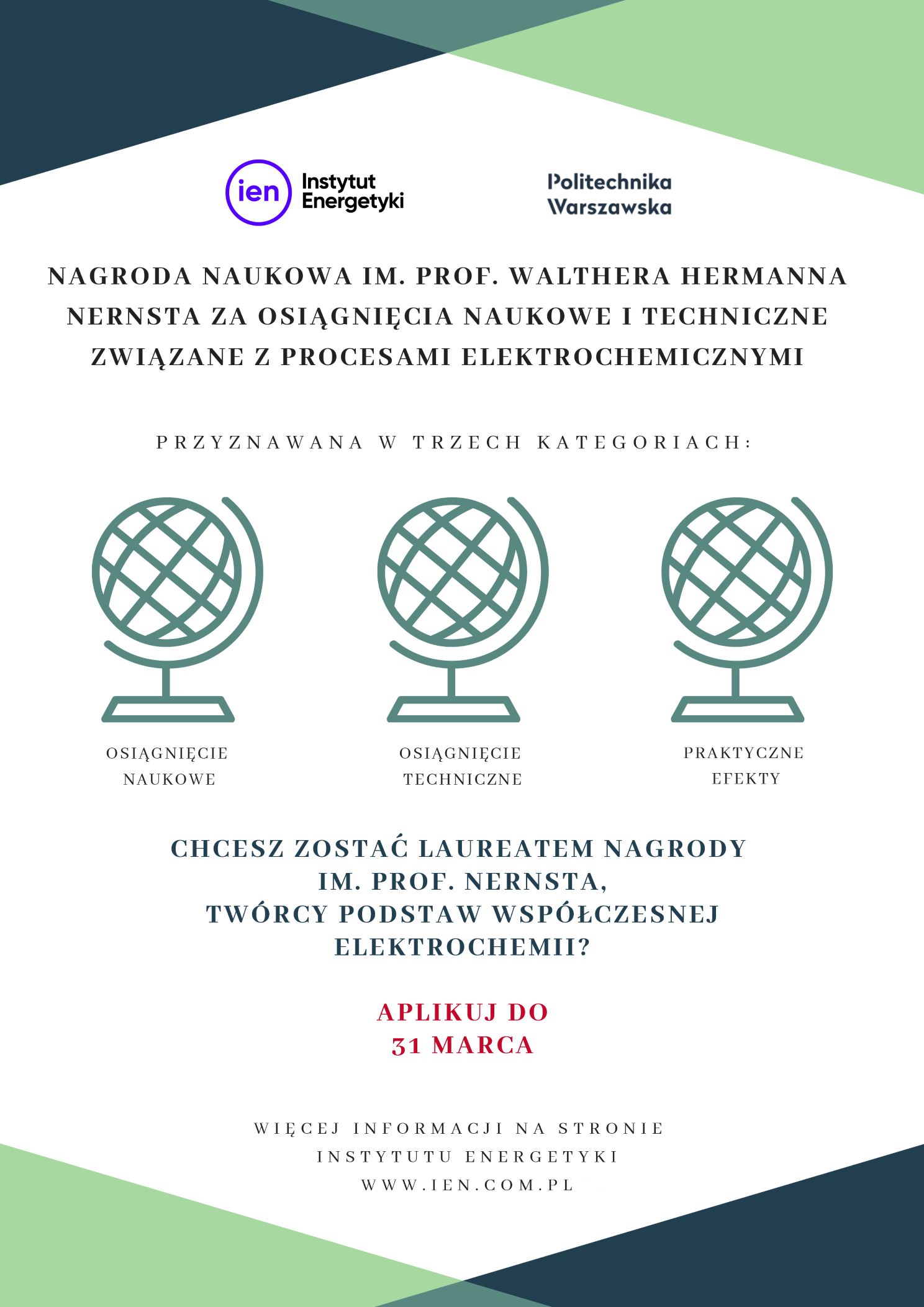Prof. Walther Herman NERNST Scientific Award for scientific and technical achievements related to electrochemical processes.
 The award was established jointly by the Institute of Power Engineering - National Research Institute and the Warsaw University of Technology. The awards are individual honors given for significant scientific, technical and practical achievements related to electrochemical processes (electrolyzers/fuel cells). The awards are given to Polish researchers or foreigners employed in Poland who are under 50 years old to recognize researchers who have made special contributions to the development of hydrogen technology.
The award was established jointly by the Institute of Power Engineering - National Research Institute and the Warsaw University of Technology. The awards are individual honors given for significant scientific, technical and practical achievements related to electrochemical processes (electrolyzers/fuel cells). The awards are given to Polish researchers or foreigners employed in Poland who are under 50 years old to recognize researchers who have made special contributions to the development of hydrogen technology.
Walther Hermann Nernst (born June 25, 1864 in Wąbrzeźno, died November 18, 1941 in Zibelle, now Niwica) - Polish-born German physicist and chemist, winner of the Nobel Prize in chemistry in 1920. He was a professor at the universities of Göttingen and Berlin and director of the Institute of Physics in Berlin. His scientific work included solid thermodynamics, electrochemistry and solution theory. In 1886, together with Albert von Ettingshausen (1850-1932), he discovered the thermomagnetic phenomenon, also known as the Nernst phenomenon or the Nernst-Ettingshausen phenomenon. He constructed the so-called Nernst lamp (1889), which emits light similar to daylight and is an intermediate link between the carbon filament bulb and the metal filament bulb. In 1906, he formulated the so-called third principle of thermodynamics (also called Nernst's principle), defining the nature of changes in thermodynamic quantities at temperatures near absolute zero. He also stated the law of division, often referred to today as Nernst's law of division. His work on electrochemistry resulted in equations known as the Nernst equation and the Nernst-Einstein equation. In 1887, he presented the concept of a mathematical description of the principle of operation of a fuel cell in the form known and used today as the Nernst equation.

